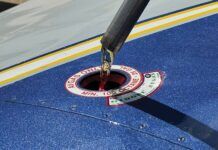I was on my way into the static display at NBAA in Orlando yesterday when I bumped into a photographer friend. He had been sent out to grab some crowd shots at Orlando Executive but was heading home empty handed. “Couldn’t find any crowds,” he said. I wouldn’t exactly say the place is deserted; the parking lot was its usual jammed mess and there were a lot of airplanes on the ramp. I have previously cautioned about reading too much into perceptions of crowd density as a means of measuring the industry’s health.
Nonetheless, in the eighth year since the economic downturn of 2008, one thing is worth noting: Virtually no one is using the word “recovery” anymore as an aspirational term that sales and manufacturing of aircraft of any kind are about to somehow turn a corner and swing upward. That this has taken so long for industry executives to concede is perhaps an equal measure of the unbridled optimism and maddening self-delusion that have propelled general aviation forever.
What’s settling in is the realization that current market conditions are the new normal for at least the next decade. In its annual aerospace forecast earlier this week, Honeywell Aerospace put some numbers on the continuing blahs. It reduced its forecast for the number of business jets to be delivered over the next decade to 8600, down from 9200 in the previous forecast. It lowered expectations by 250 airframes in 2015 over 2014, so if there’s recovery out there, it’s unlikely to be defined by rising jet sales.
Maybe that’s a reflection of this year’s NBAA BACE and maybe it’s not. There are no major airframe announcements this year and the press conference schedule was both lightly populated and sterile of any major news. As we reported, Embraer is showing two things not seen before, the Phenom 100EV and the Legacy 450. But the EV is just an upgraded 100 and the 450 has been out there certified for a year; its appearance here just marks the first time it has been seen with a completed interior. Dassault revealed a new cabin for its 900LX and today, Pilatus will fly in its PC-24 jet, but again, it’s midstream in certification so it’s nothing but a photo op.
I’ve noted before that the sales of large cabin jets have been hit hard by a flat world economy but that hasn’t stopped development of new models, nor should it. At Orlando, Cessna is showing a cabin mockup of its new Citation Hemisphere, the largest business aircraft the company has ever attempted. Look for a video tour of it later in our show coverage. That airplane won’t fly until 2019 and certification will happen in the early 2020s. That won’t be beyond Honeywell’s sobering lukewarm market forecast, but companies can’t stop developing new products simply because the current market is flat. If they do, they’ll be caught flat footed when the market swings upward, as it always has.
In the boom-bust cycle of aerospace, one phrase has always been verboten: managing the market. American companies have tended to go full tilt when the market was strong and suffered the consequences when it reversed, which it, without fail, always has. Ask anyone in Wichita about this and the thing they’ll most remember is the painful layoffs ignited by aerospace downturns. In that context, something Pilatus said at its press briefing Monday caught my attention.
Pilatus has had a pretty good couple of years, selling between 60 and 70 PC-12s. But a Pilatus executive said the company would limit production in 2017 because it doesn’t want to saturate the market and tank the used prices of recent models. The company terms this as customer protection and whether that’s the true motivation or not, it’s refreshing to hear. Second, despite taking its share of the pain in 2009, Pilatus didn’t lay off any workers. That’s a fundamentally different way of looking at capitalism than American companies tend to practice, where, in management by quarterly P&L performance, workers are viewed as little more than fungible spreadsheet entries. U.S. business enjoys a certain vitality from the creative destruction of boom-bust cycles and that’s a nice philosophical talking point. But it’s less impressive if you’re one of the workers shown the door.

































